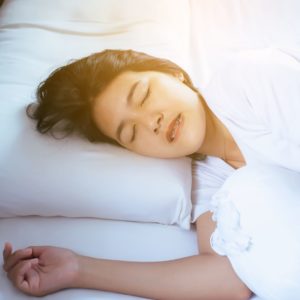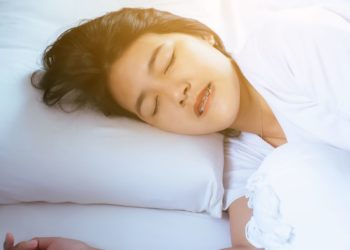
How Does a Home Sleep Study Work?
To conduct a home sleep study, the patient receives a small device from their doctor, along with simple instructions on how to use it. The steps to conduct the study may be reviewed in the office ahead of time. If not, patients should review their instructions when they return home so, if they have questions, they can contact the office during business hours. The at-home sleep study is conducted using a compact device worn around the head when the patient sleeps. The device collects important data, including blood oxygen levels, pulse, and breathing patterns. The test is conducted comfortably and efficiently and is returned to the doctor’s office for interpretation.
Understandably, a home sleep study test may sound ideal to most patients. It is important to understand that there are limitations to this approach. A doctor may not recommend a home sleep study for patients who exhibit signs of other sleep disorders. For example, a person may show signs of sleep apnea and may also have restless legs syndrome. In this instance, or when a person has chronic or severe health problems, more involved diagnostic testing is advantageous. The goal of a sleep study is to find the root cause of poor sleep so proper treatment can be developed. Home sleep studies offer certain benefits but are carefully selected by a discerning physician.
If you are presenting with signs of sleep apnea, such as chronic, loud snoring, chronic fatigue, daytime sleepiness, or lack of productivity, talk to your doctor. A specialist like Dr. Bowen may recommend a home sleep study as part of a comprehensive diagnostic process to fully understand your condition. To schedule an appointment at our NYC pulmonary practice, call 212-480-4062 or schedule a visit online here. A member of our staff will confirm your appointment.

